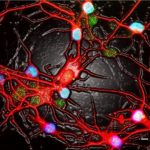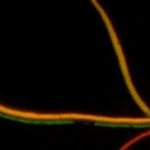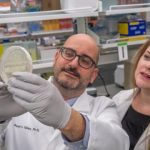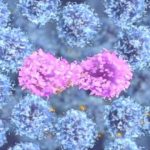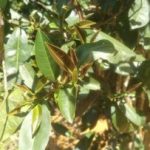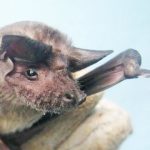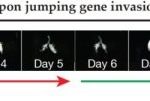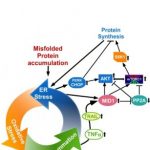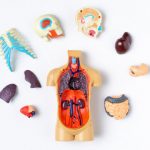Study: Hyperactive brain cells may be to blame when antidepressants don’t work — ...
The most commonly prescribed antidepressants, selective serotonin reuptake inhibitors (SSRIs), lift the fog of depression for many people. But for around a third...
Study: Anti-evolvability drugs could slow antibiotic resistance in bacteria — (Details)
The failure of existing antibiotics to combat infections is a major health threat worldwide. While the traditional strategy for tackling drug resistance has...
Study: Magnetic gene in fish may someday help those with epilepsy, Parkinson’s — ...
An aquarium fish that senses the Earth's magnetic field as it swims could help unlock how the human brain works and how diseases...
Study: Imaging collaboration sheds new light on cancer growth — (Details)
Walter and Eliza Hall Institute researchers have uncovered new insights into how the normal controls on cell growth are lost in cancer cells,...
Study: Can stimulating the brain treat chronic pain? — (Details)
For the first time, researchers at the UNC School of Medicine showed they could target one brain region with a weak alternating current...
Study: A newly discovered, naturally low-caffeine tea plant — (Details)
Tea drinkers who seek the popular beverage's soothing flavor without its explosive caffeine jolt could soon have a new, naturally low-caffeine option. In...
Study: Evidence for a widespread virus reservoir in Africa — (Details)
Researchers have identified Bombali ebolavirus in an Angolan free-tailed bat captured in the Taita Hills, southeast Kenya. No ebolaviruses have been previously reported...
Study: How invading jumping genes are thwarted — (Details)
Since Carnegie Institution's Barbara McClintock received her Nobel Prize on her discovery of jumping genes in 1983, we have learned that almost half...
Study: Improved understanding of the pathology of dwarfism may lead to new treatment targets...
Pseudoachondroplasia (PSACH) is a severe inherited dwarfing condition characterized by disproportionate short stature, joint laxity, pain, and early onset osteoarthritis. In PSACH, a...
Study: Scientists discover cellular structures with extreme longevity, leading to insights for age-associated diseases...
Scientists once thought that neurons, or possibly heart cells, were the oldest cells in the body. Now, Salk Institute researchers have discovered that...
Top News
Hey ISIS, You Suck: Local Muslims Post Anti-ISIS Billboard
A new billboard on Manchester Road in Missouri reads, "HEY ISIS, YOU SUCK!!! From: #ActualMuslims."
A group of Muslim-Americans have put up a blunt billboard...

